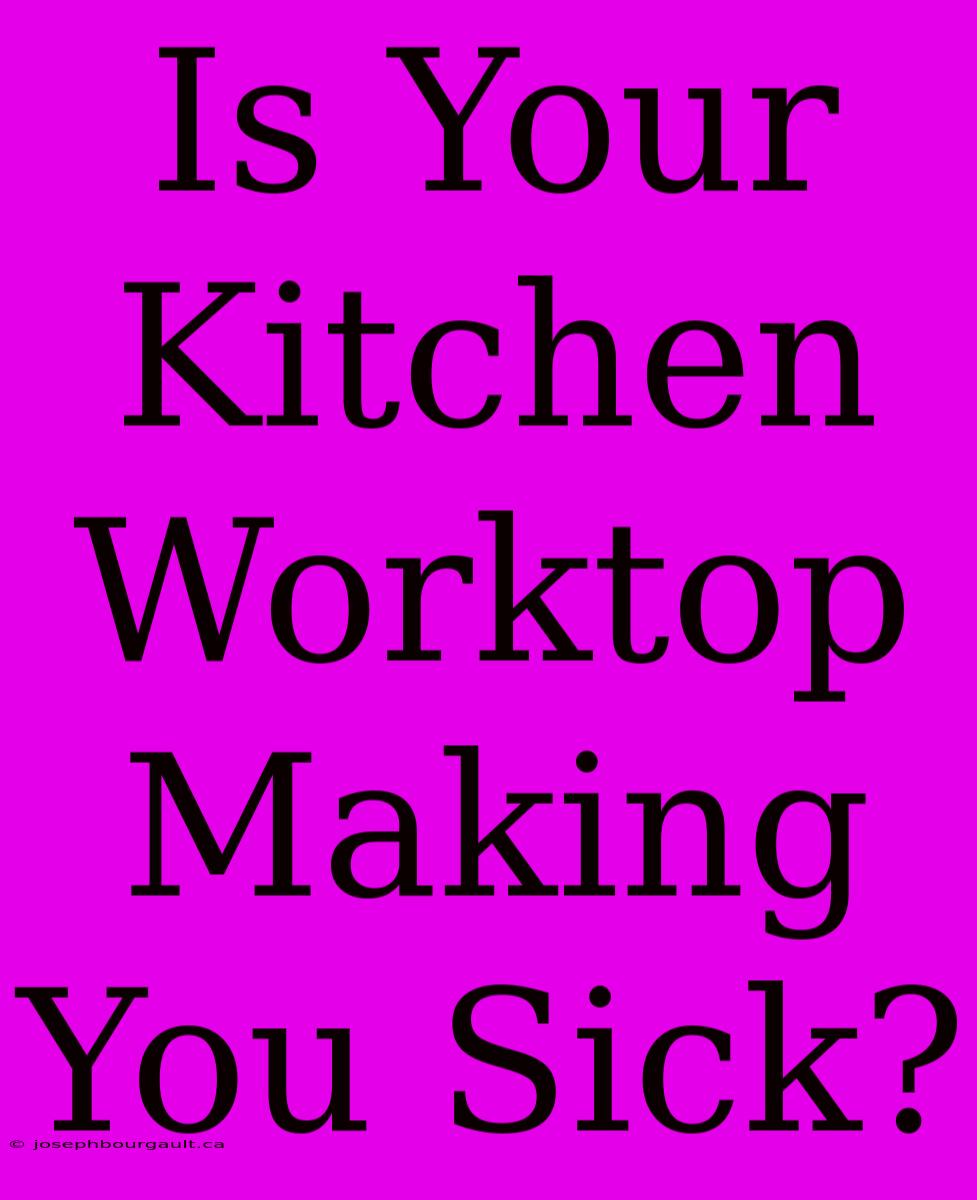Is Your Kitchen Worktop Making You Sick?
Your kitchen worktop is the heart of your kitchen, a space where you prepare meals, bake, and entertain. But did you know that your seemingly innocent worktop could be a silent culprit in your health woes? While most people focus on the food they consume, the materials used in our kitchens can play a significant role in our overall well-being.
The Hidden Dangers of Common Worktop Materials
1. Laminate:
- Pros: Affordable, easy to clean, and available in various designs.
- Cons: Can harbor bacteria, especially around the seams. The melamine resin used can release harmful formaldehyde, a known carcinogen.
2. Granite:
- Pros: Durable, heat-resistant, and naturally beautiful.
- Cons: Porous, making it susceptible to staining and bacteria. Can contain high levels of radon, a radioactive gas that can be harmful when inhaled.
3. Marble:
- Pros: Elegant, natural, and adds a luxurious feel to your kitchen.
- Cons: Porous, easily stained, and can react with acidic foods, releasing harmful chemicals.
4. Stainless Steel:
- Pros: Durable, easy to clean, and resistant to bacteria.
- Cons: Can be cold and prone to scratches. The nickel in stainless steel can be an allergen for some people.
5. Wood:
- Pros: Warm, natural, and adds a rustic feel to your kitchen.
- Cons: Requires regular sealing and maintenance to prevent bacteria growth and warping. Can be damaged by heat and moisture.
Signs Your Worktop Might Be Making You Sick:
- Frequent illnesses: If you notice you're getting sick more often than usual, especially after spending time in your kitchen, your worktop might be a contributing factor.
- Skin irritation: Redness, itching, or rash on your hands after handling food or cleaning your worktop could indicate an allergic reaction to the material.
- Respiratory problems: Feeling stuffy, coughing, or having trouble breathing while cooking or spending time in the kitchen could be a sign of inhaling harmful chemicals.
Protecting Yourself from Worktop Hazards:
- Choose the right material: Opt for non-porous, non-toxic materials like quartz or solid surface worktops. These are more resistant to bacteria, stains, and chemical leaching.
- Regular cleaning and sanitation: Clean your worktop thoroughly with antibacterial cleaners and disinfectants, especially after preparing raw meat or poultry.
- Seal wood worktops: Apply a food-safe sealant to your wooden worktop to prevent bacteria growth and staining.
- Ventilate your kitchen: Ensure good ventilation while cooking to minimize the build-up of harmful chemicals and fumes.
- Choose sustainable options: Consider eco-friendly worktop materials like bamboo or recycled glass.
Conclusion:
Your kitchen worktop should be a source of comfort and health, not a health hazard. By being aware of the potential risks and taking appropriate precautions, you can enjoy a safe and healthy cooking environment. Remember, a healthy kitchen is a healthy home!

